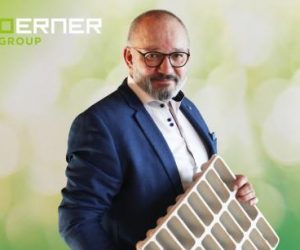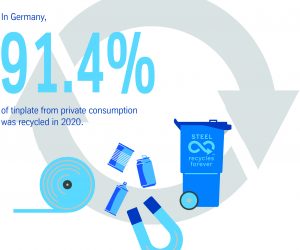

Partially coated banding paper with significantly less than 5 % foreign material
For paper to be recycled in the paper stream, it must not contain too much foreign material. The country-specific differences are significant.
Banding paper is coated with a thin layer of PP so that it can be welded by banding machines with ultrasonic or heatseal technology. The coating also influences the properties of the banding paper and makes it resistant to moisture, for example. This layer is so thin that in most countries the banding paper can be recycled in the paper stream. The foreign material is separated from the paper during the recycling process and recycled or disposed of separately. The percentage of foreign material depends, among other things, on the width (e.g. 60 mm) and the grammage (e.g. 90 g/m2 ) of the banding paper used.
Mono material does not mean the same in all countries
The definition of the term mono-material and thus its suitability for a recycling cycle varies from country to country. In Sweden, for example, paper may contain up to 50% foreign material and is still considered paper. In many countries, including the USA, a material may not contain more than 15% foreign material to be considered mono-material. More and more countries – including Germany and France – are going one step further and setting the maximum foreign material content for mono material at a maximum of 5%.
The solution: Partially coated banding paper
Our partially coated banding paper is the ideal solution for many applications where banding paper with less than 5% foreign material is to be used. Large French apple producers such as Perlim Meylim L’Alliance, BlueWhale or Pink Lady, for example, rely on printed, partially coated paper banderoles with a width of 60 mm and a grammage of 120 g/m2. The proportion of foreign material in these banderoles is even less than 3 %.
100% RECYCLABLE APPLE PACKAGING AT PERLIM MEYLIM L’ALLIANCE
And what about the banding films?
By the way, all our banding films consist of 100% PP, HDPE or PLA, are therefore considered mono-material and are completely recyclable.
For more information go to www.ats-tanner.com





